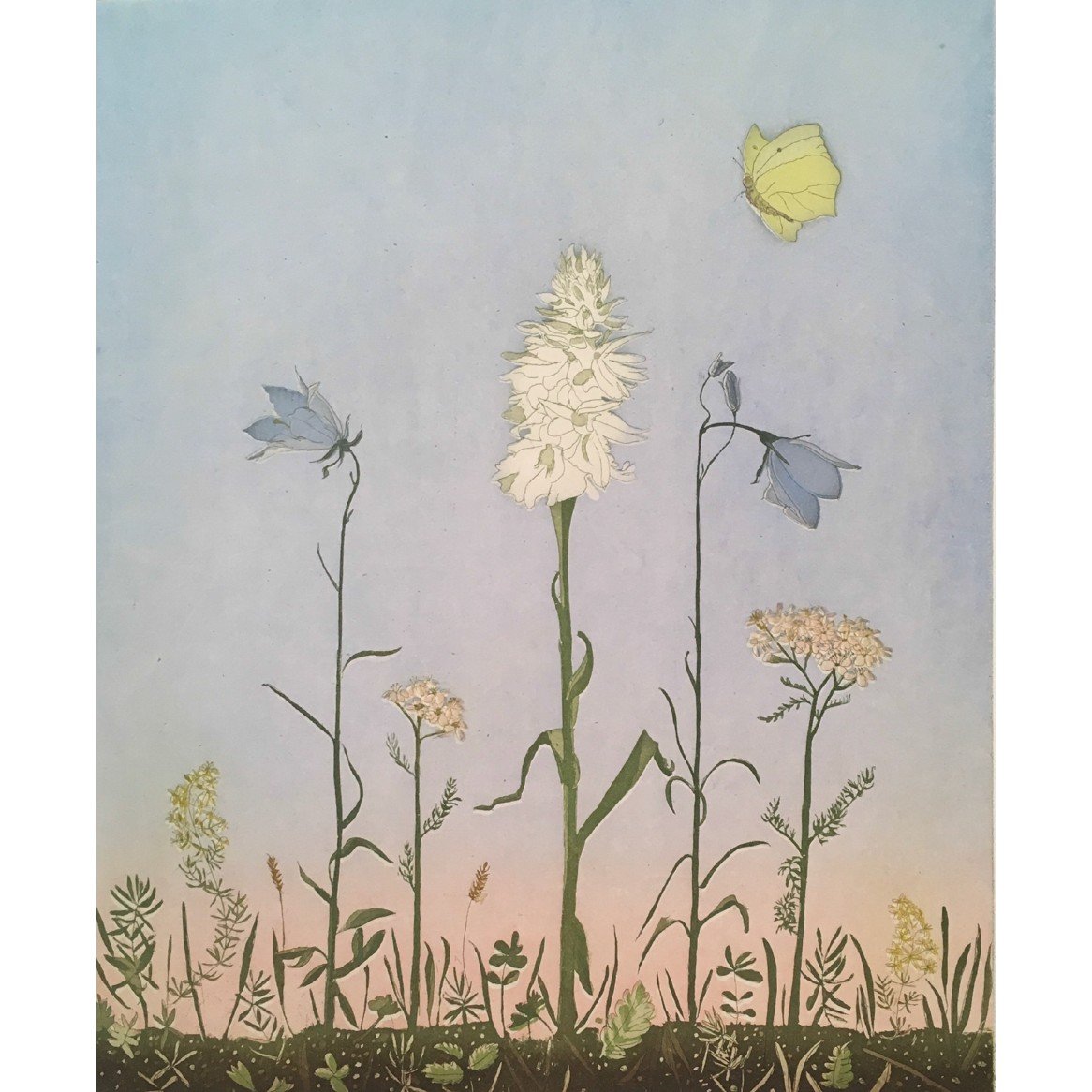Grace Ryan
£0.00
available for orders over £1.00
Grace Ryan is a Dublin based multidisciplinary artist and printmaker. Her practice explores the ubiquity of historically gendered materials and their entanglement with female subjectivity and mythology. Indebted to the idea of the hybrid as a vessel for transgression, the work recontextualises the way we fetishise unrealistic ideals, through the processes of mutation and transformation.
Utilising latex, brass, wood, and animal skins, in combination with printmaking methods, casting and manual craft, there is a profound interest expressed in how material culture can shape art reception. Treating chosen materials with equal reverence, their processing realises their performative qualities, in relation to their historical position. Echoing eroticism, commodity, ritual, and tradition, mediums become rooted in an anthropological and feminist context that raises questions around what our culture assigns value to.
An emphasis on the attraction/repulsion dichotomy is apparent in her unconventional combinations. When norms become suspended, this permits more narratives to accumulate, calling into question whether beauty is a valuable concept when making contemporary art that deals with the feminine. The viewer is invited to reconsider boundaries of desire and disgust as a mode of engagement and critique with social, gendered, and material histories.
Utilising latex, brass, wood, and animal skins, in combination with printmaking methods, casting and manual craft, there is a profound interest expressed in how material culture can shape art reception. Treating chosen materials with equal reverence, their processing realises their performative qualities, in relation to their historical position. Echoing eroticism, commodity, ritual, and tradition, mediums become rooted in an anthropological and feminist context that raises questions around what our culture assigns value to.
An emphasis on the attraction/repulsion dichotomy is apparent in her unconventional combinations. When norms become suspended, this permits more narratives to accumulate, calling into question whether beauty is a valuable concept when making contemporary art that deals with the feminine. The viewer is invited to reconsider boundaries of desire and disgust as a mode of engagement and critique with social, gendered, and material histories.
Grace Ryan is a Dublin based multidisciplinary artist and printmaker. Her practice explores the ubiquity of historically gendered materials and their entanglement with female subjectivity and mythology. Indebted to the idea of the hybrid as a vessel for transgression, the work recontextualises the way we fetishise unrealistic ideals, through the processes of mutation and transformation.
Utilising latex, brass, wood, and animal skins, in combination with printmaking methods, casting and manual craft, there is a profound interest expressed in how material culture can shape art reception. Treating chosen materials with equal reverence, their processing realises their performative qualities, in relation to their historical position. Echoing eroticism, commodity, ritual, and tradition, mediums become rooted in an anthropological and feminist context that raises questions around what our culture assigns value to.
An emphasis on the attraction/repulsion dichotomy is apparent in her unconventional combinations. When norms become suspended, this permits more narratives to accumulate, calling into question whether beauty is a valuable concept when making contemporary art that deals with the feminine. The viewer is invited to reconsider boundaries of desire and disgust as a mode of engagement and critique with social, gendered, and material histories.
Utilising latex, brass, wood, and animal skins, in combination with printmaking methods, casting and manual craft, there is a profound interest expressed in how material culture can shape art reception. Treating chosen materials with equal reverence, their processing realises their performative qualities, in relation to their historical position. Echoing eroticism, commodity, ritual, and tradition, mediums become rooted in an anthropological and feminist context that raises questions around what our culture assigns value to.
An emphasis on the attraction/repulsion dichotomy is apparent in her unconventional combinations. When norms become suspended, this permits more narratives to accumulate, calling into question whether beauty is a valuable concept when making contemporary art that deals with the feminine. The viewer is invited to reconsider boundaries of desire and disgust as a mode of engagement and critique with social, gendered, and material histories.
Grace Ryan is a Dublin based multidisciplinary artist and printmaker. Her practice explores the ubiquity of historically gendered materials and their entanglement with female subjectivity and mythology. Indebted to the idea of the hybrid as a vessel for transgression, the work recontextualises the way we fetishise unrealistic ideals, through the processes of mutation and transformation.
Utilising latex, brass, wood, and animal skins, in combination with printmaking methods, casting and manual craft, there is a profound interest expressed in how material culture can shape art reception. Treating chosen materials with equal reverence, their processing realises their performative qualities, in relation to their historical position. Echoing eroticism, commodity, ritual, and tradition, mediums become rooted in an anthropological and feminist context that raises questions around what our culture assigns value to.
An emphasis on the attraction/repulsion dichotomy is apparent in her unconventional combinations. When norms become suspended, this permits more narratives to accumulate, calling into question whether beauty is a valuable concept when making contemporary art that deals with the feminine. The viewer is invited to reconsider boundaries of desire and disgust as a mode of engagement and critique with social, gendered, and material histories.
Utilising latex, brass, wood, and animal skins, in combination with printmaking methods, casting and manual craft, there is a profound interest expressed in how material culture can shape art reception. Treating chosen materials with equal reverence, their processing realises their performative qualities, in relation to their historical position. Echoing eroticism, commodity, ritual, and tradition, mediums become rooted in an anthropological and feminist context that raises questions around what our culture assigns value to.
An emphasis on the attraction/repulsion dichotomy is apparent in her unconventional combinations. When norms become suspended, this permits more narratives to accumulate, calling into question whether beauty is a valuable concept when making contemporary art that deals with the feminine. The viewer is invited to reconsider boundaries of desire and disgust as a mode of engagement and critique with social, gendered, and material histories.






